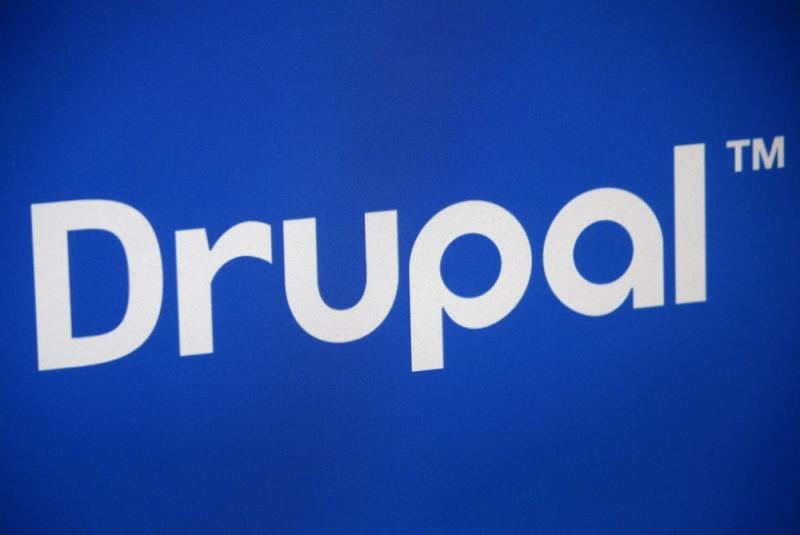TECHNOLOGY
6 Keys to Successful Drupal Implementation
Considering a new Drupal project? Read this first!

Are you considering a Drupal implementation for your website? If so, you'll be joining the 1,000,000 websites that use Drupal. The open-source platform is highly flexible and scalable. It can run simple websites, multi-user blogs, or large e-commerce sites. Compared to other out-of-the-box content management systems, Drupal has a wide range of functionality to help you create the website you've always wanted for your business.
One drawback with the Drupal platform is that it demands a fair amount of technical knowledge. It's like the swiss army knife of CMS. There's a tool for everything you need- you just have to know how to use it. Many of the issues people run into crop up during the implementation process. Fortunately, these can be avoided with the proper knowledge. Here are some tips to make your Drupal implementation a success:
Use caching solutions
A common complaint is that Drupal websites are slow. This is a huge problem because visitors expect content to load quickly, and they won't wait around for a slow website to render. However, the issue isn't necessarily with Drupal. Drupal is actually quite fast when you have installed the proper caching solutions, such as:
• Page and block caching
• Server-side caching
Caching drastically reduces the amount of time it takes to load content on a page. And, it's easy to enable caching in your Drupal site's settings. If you're looking for more ways to increase your page speed, you can also consider enabling CSS and javascript file aggregating modules.
Choose a good web host
If you don't have a good web host, your Drupal site won't function the way it's supposed to. You may experience problems like frequent downtime or your website going down when you receive high volumes of traffic. This has nothing to do with your CMS. It's a problem with your host. Avoid these issues by choosing a web host that guarantees uptime and provides good customer service. If you're not sure who to trust, do some research. Read reviews to see how previous customers rate their performance and make a decision based on that information.
Don't change Drupal core files
If you want to customise your Drupal site, use the free modules, plugins, and themes that are available. Don't change the core files. These basic core files are the foundation of your website. Unless you're a skilled developer and you know exactly what you're doing, leave them alone. You could introduce errors into your website's code that cause serious problems. In the worst case scenario, it doesn't work at all after you've tampered with the code. And further down the line, you'll run into problems when there are system updates that revise the core files. It's better to use modules to customise your site. They don't impact the core files, so your site will continue to work even as new versions are released.
Don't use outdated modules
Using outdated or inactive modules is another mistake to avoid. Modules that aren't being updated or supported anymore may be buggy when they are used with the latest version of Drupal. In some cases, they won't even be compatible with your current version and they could leave your site vulnerable to security issues. It's better to opt for modules that are compatible with the version of Drupal you're using.
Do use security features
Drupal is a highly secure content management system by default. It has a team of dedicated developers who monitor security, and the platform consistently offers security updates. Still, it's smart to use the security features at your disposal to further protect your website. Here are some popular security modules to use to keep your site safe:
• Password policy - This module establishes password constraints for website users. It won't accept passwords such as ABC123, which are easily hacked and leave your site open to vulnerabilities. Instead, users have to create passwords with a designated number of lowercase or uppercase letters, special characters, and numbers.
• Security Review - This module conducts an automated search for common mistakes that compromise your site's security. It generates a list of any errors it finds so you can make the necessary changes. (The module doesn't make the changes itself.)
• Username Enumeration protection - This protects you from block brute force attacks in which an attacker makes consecutive guesses until they discover your personal information. This module prevents that by generating an automated response when a person enters the incorrect username that doesn't indicate whether or not it's correct.
• Security Kit - This module lowers the risk of attacks by reducing vulnerabilities. It hardens security options against cross-site scripting, cross-site request forgery, clickjacking, and SSL/TLS.
• Generate Password - This module reduces security risks while registering new users by making the password field optional or hiding it from view. If the new user doesn't set a password on the registration page, it auto-generates a password that meets the requirements of your password policy to provide maximum security.
Stay current with proven updates
Avoid running an outdated version of Drupal core for too long. Over time, your site will become vulnerable to security issues and you might experience functionality problems. However, that doesn't mean you have to update to every point version (7.1, 7.12, 7.13) that Drupal releases. Some people advise that you wait a few months after a major release (and a few point versions) to give the developers time to work out any bugs that surface.
When implemented properly, Drupal is a powerful tool for your website. Using it as a CMS allows you to customise your site's functionality, look, and features, so your website does exactly what you need it to do to make money online.